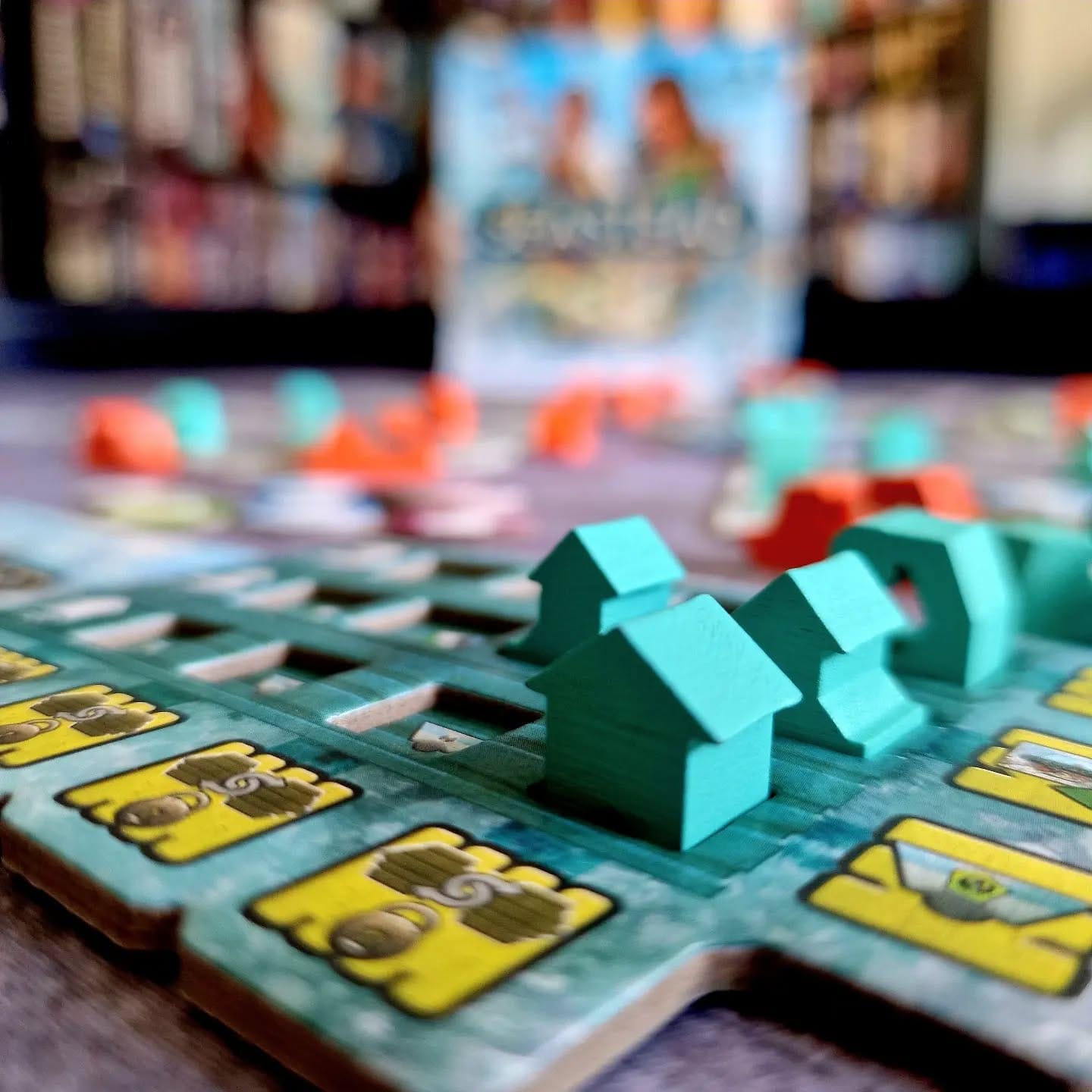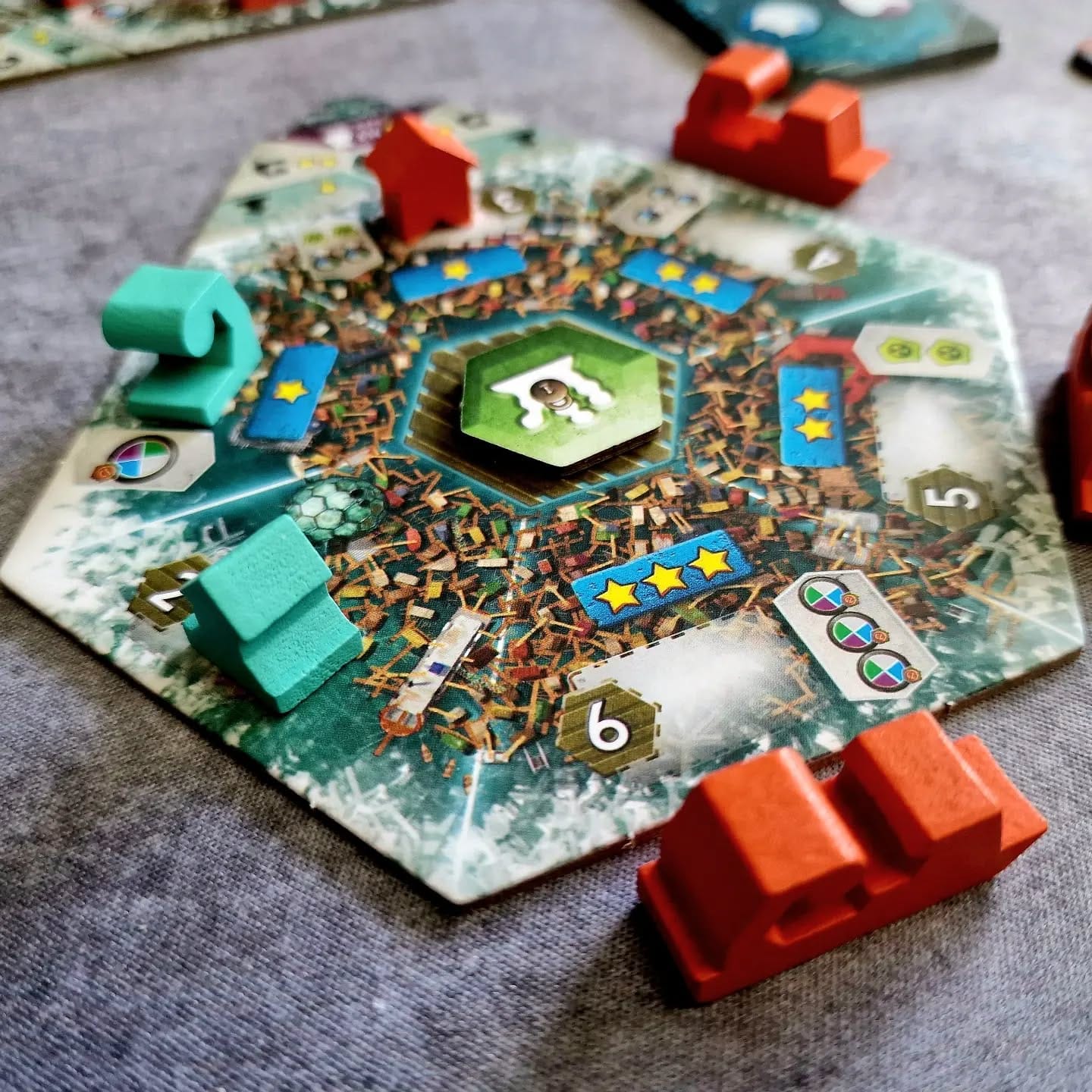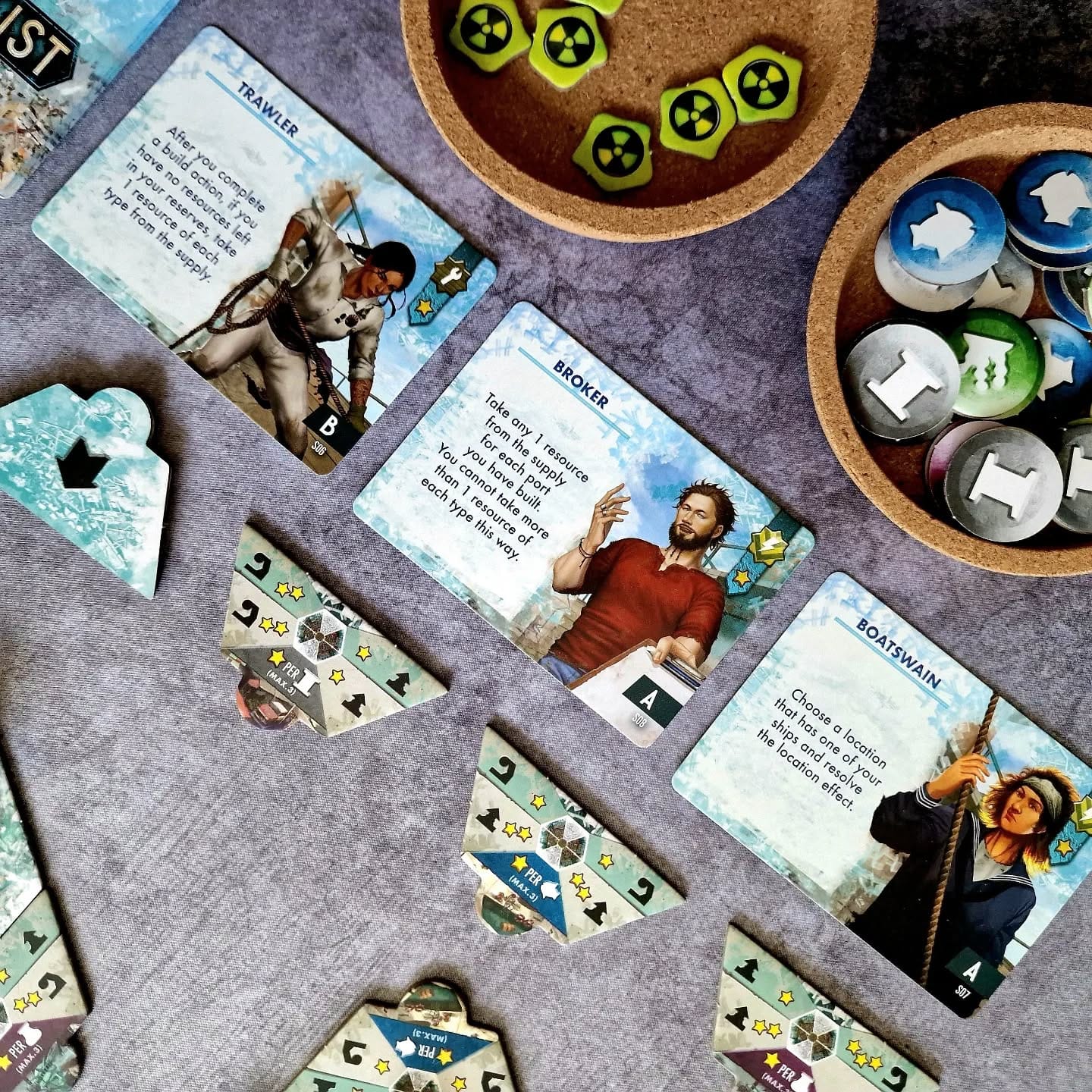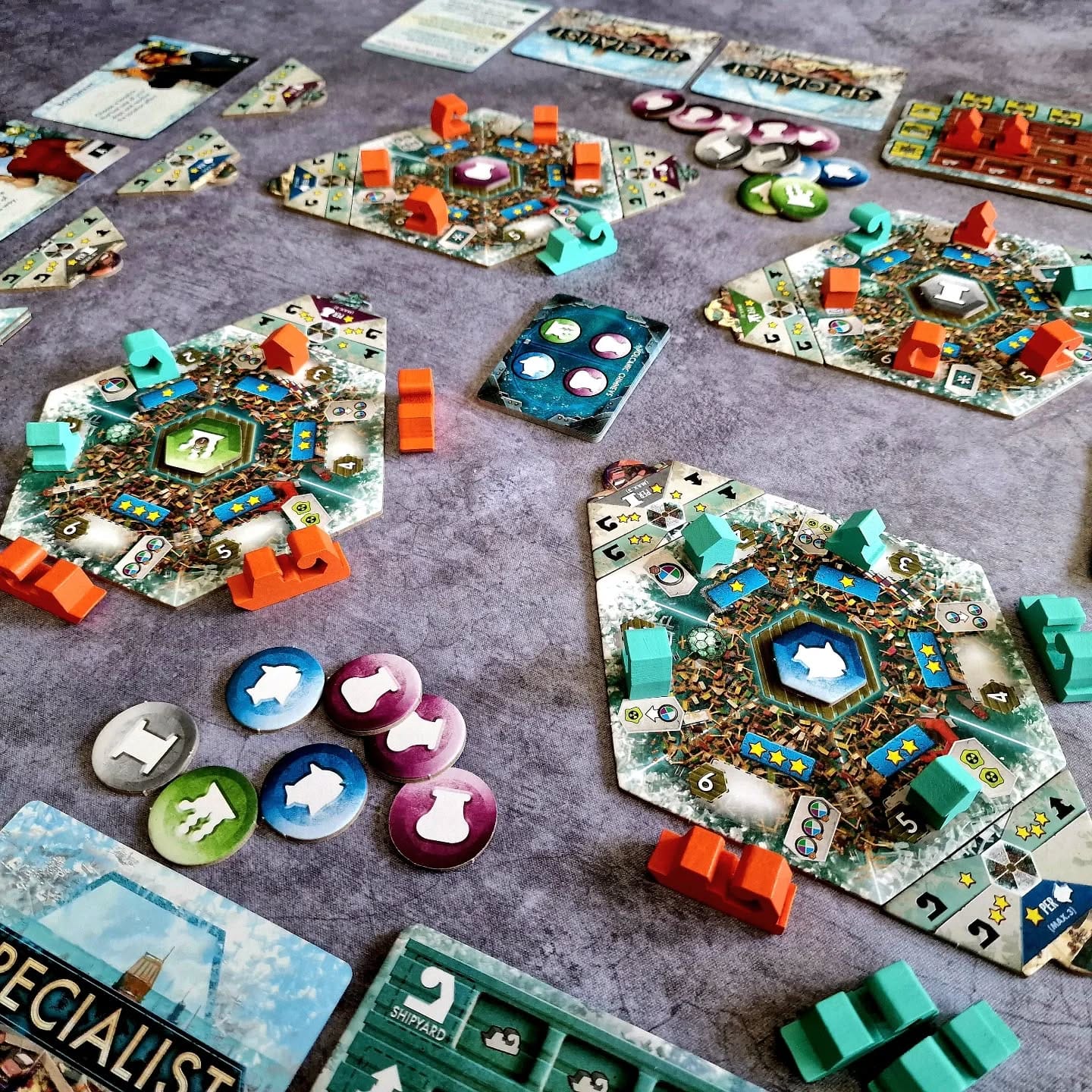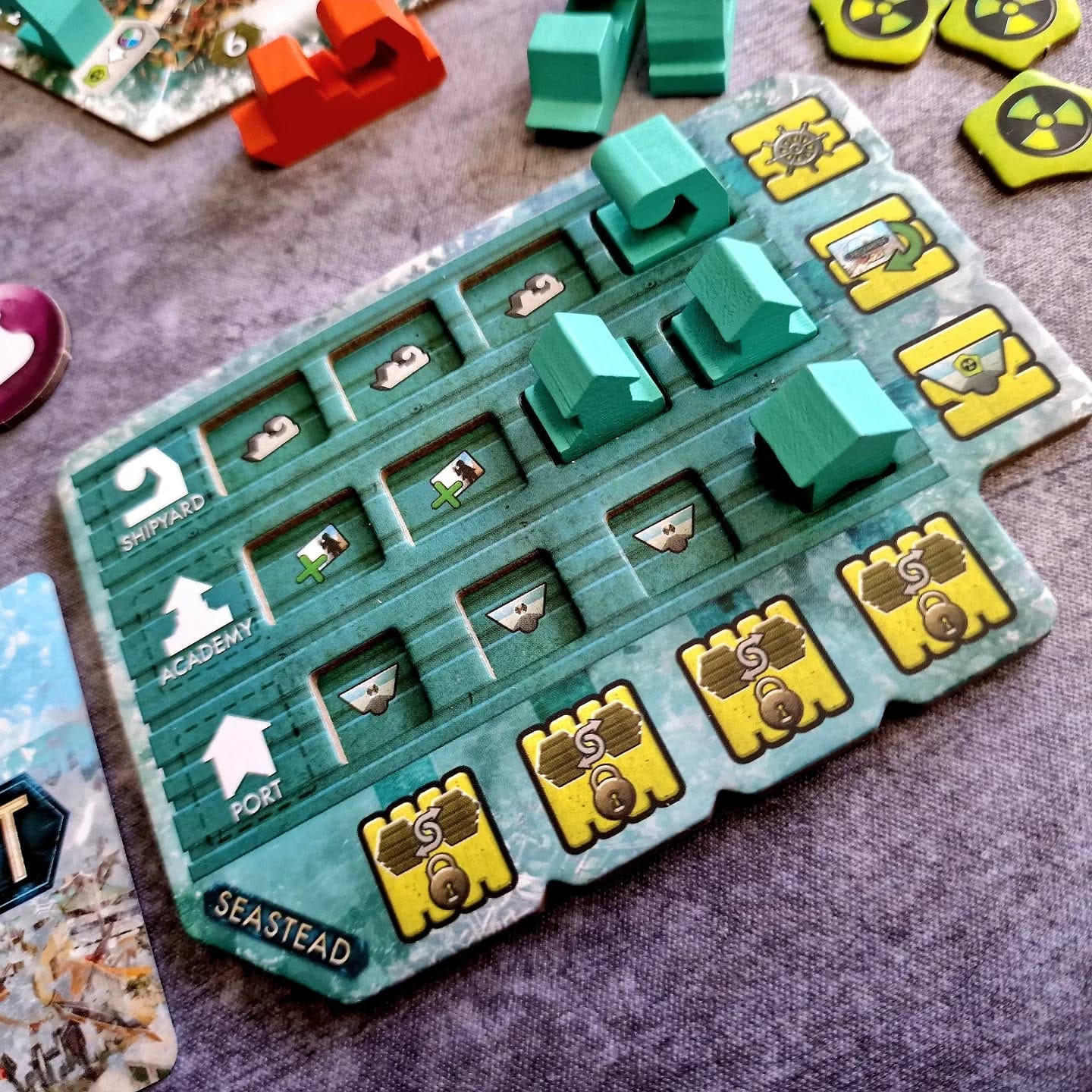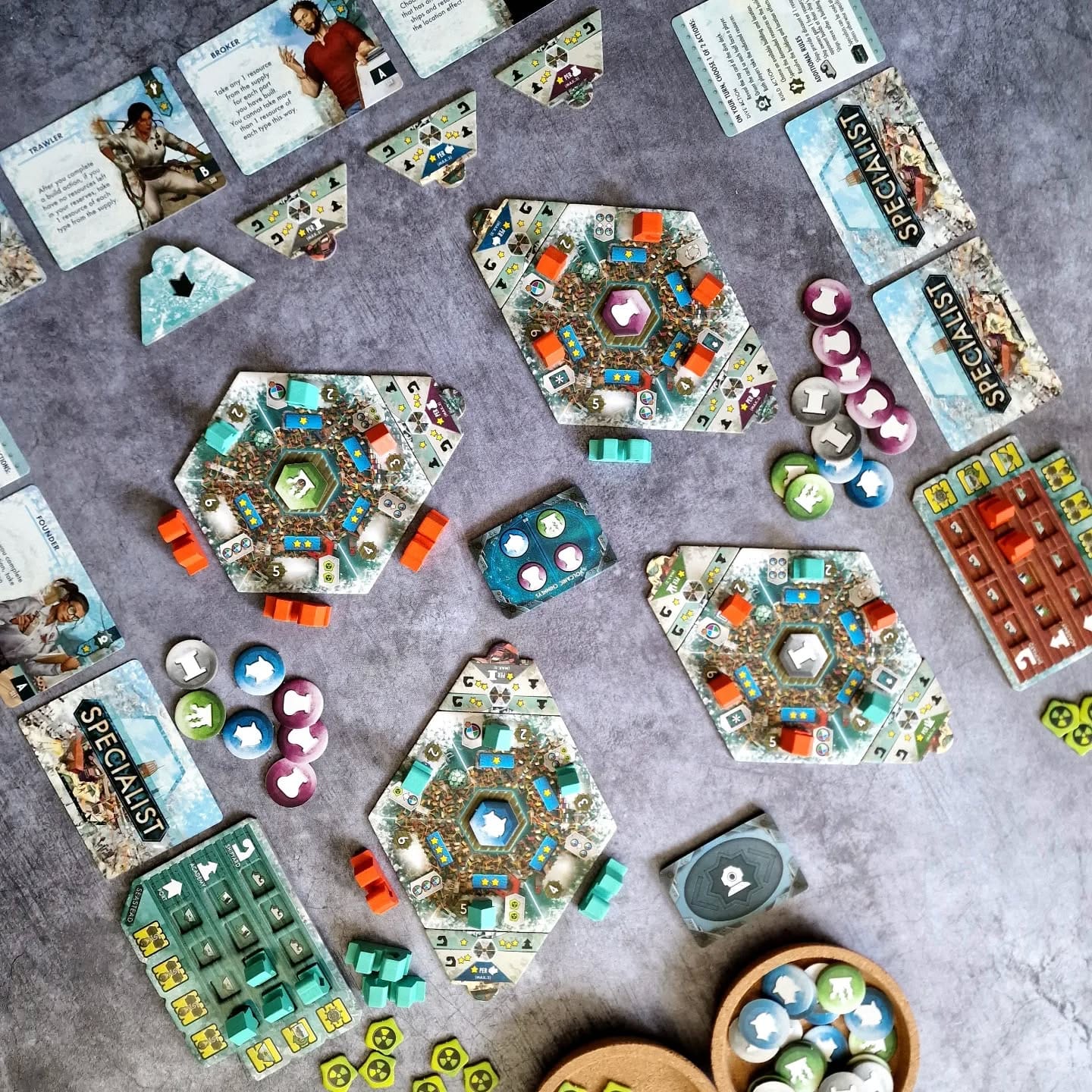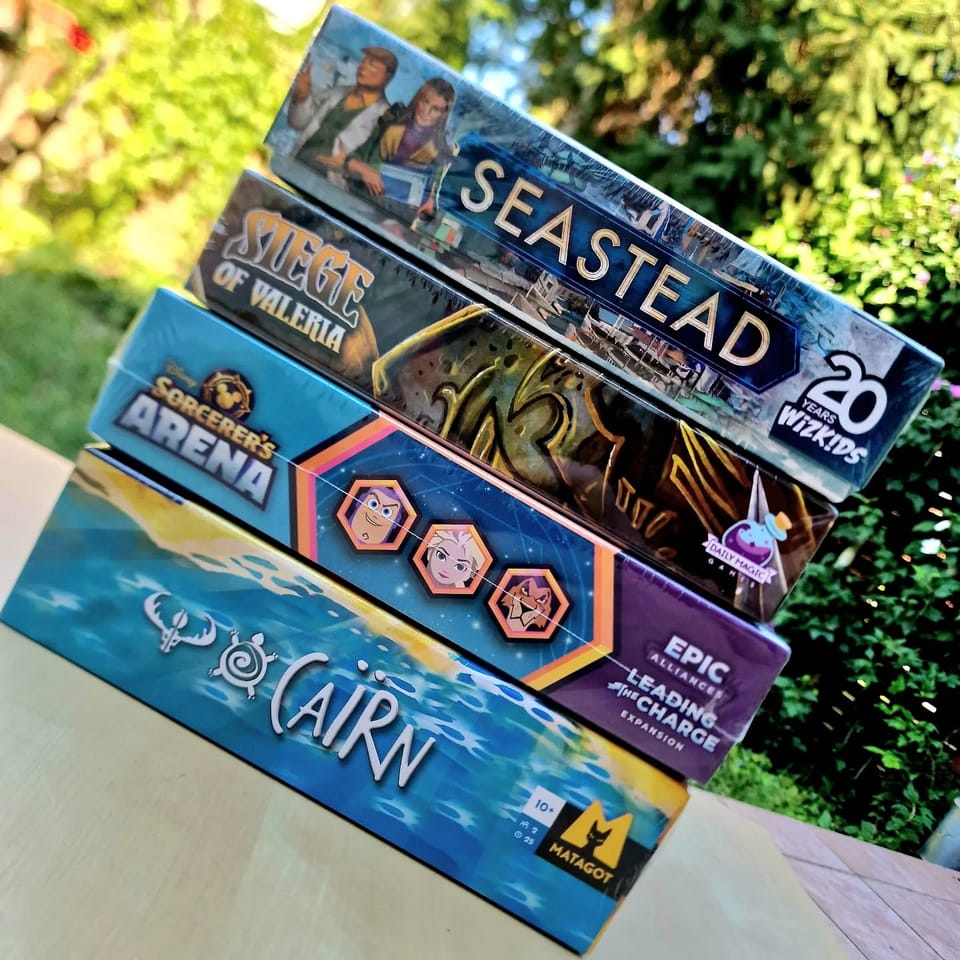Post-apocalyptic floating cities
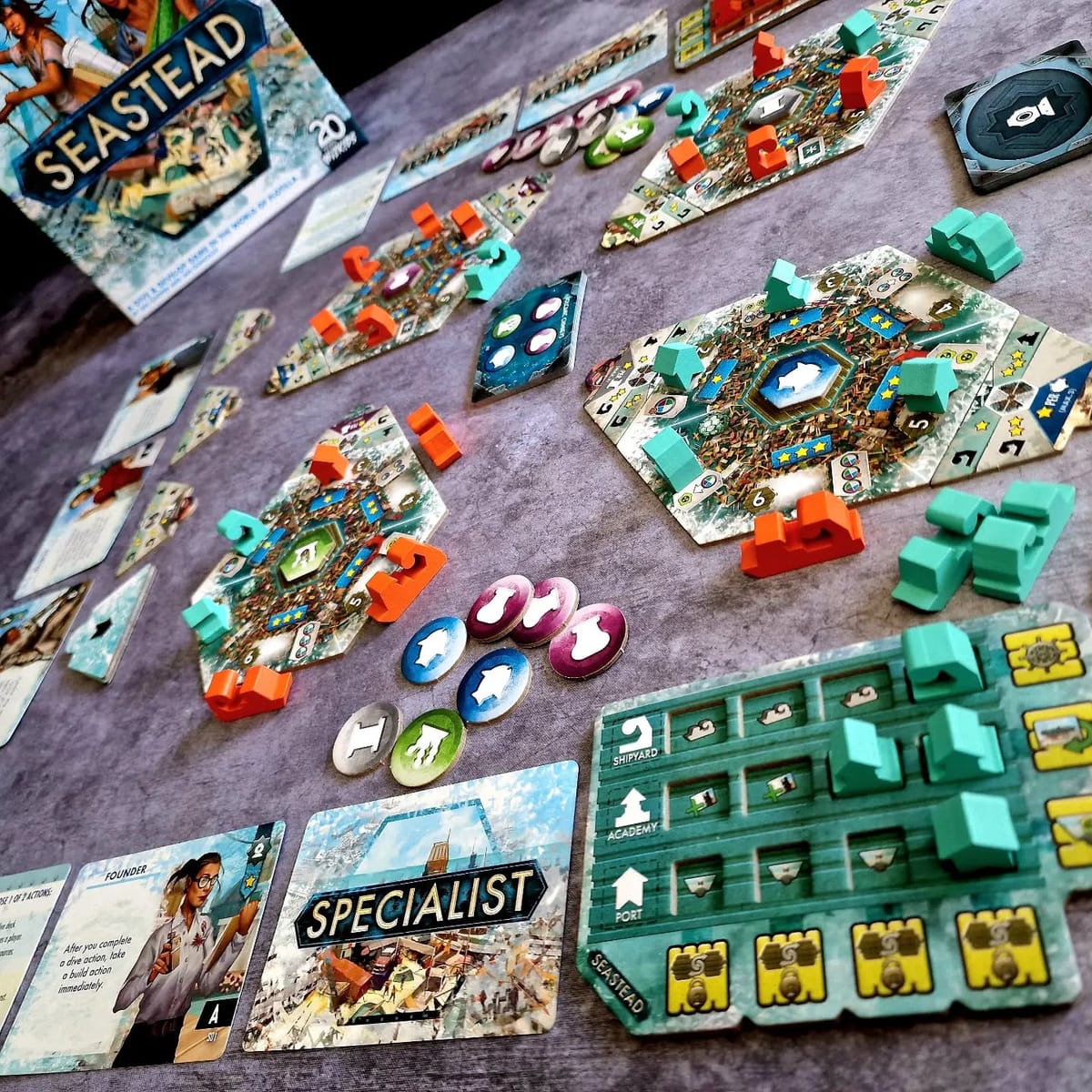
In Seastead you play as people of a post-apocalyptic Earth, competing to govern the last remaining floating cities 🏘️, as the oceans 🌊 have engulfed everything. You have to dive deep to gather resources and expand these cities.
Seastead is a 2-player only spin-off game of Flotilla - I have never played that one, but like the theme and concept of these games.
The flow of the game is really simple: 🧐 on your turn you either dive for resources, or build a building. If you go for resources, you draw a card and have to divide its depicted resources between you and your opponent. You have to be careful not to assist your opponent too much. If you build, there are 3 different types of buildings you can place:
🏗️ Shipyards allow you to deploy a boat on an empty building space to give a discount there in the future.
🏫 Academies allow you to draw a Specialist card that you can either flip for its ability, or leave unused for its points value.
⚓ Ports can score you points at the end of the game, depending on their shown resource type and building positions.
There are 4 flotillas where you can build, each corresponding to 1 of the 4 resources of the game. The better spot you choose, the more of that resource the building costs. Other than getting the ability of the building itself, you also activate the location's ability, and that’s not all: completely emptying a row or column of buildings will give you additional bonuses. 👍
You play like this until one of the end game triggers is reached, then count up points to see who will be the new leader of humanity. 🎖️ The biggest part of your score is made up by your Ports, which also leads us to why we didn’t enjoy this game.
💬 Ultimately it all just isn’t exciting: many bonuses and actions will just give you resources so you can build even more. It’s all about being efficient with your resources, so you don’t have to dive that often. As Ports are worth so many points, it seems like all you are trying to do is to fulfill their scoring parameters, and everything else fades into the background.Yet the decision space is quite limited and all in all it fell flat for us.
